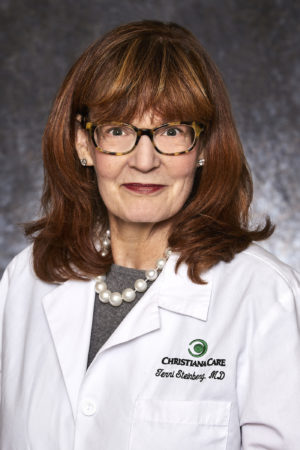ChristianaCare earns national award for leveraging machine learning to improve population health
Catalyst Award for Innovation recognizes ChristianaCare’s leadership in health care information technology
 ChristianaCare has been recognized with the Catalyst Award for Innovation from Health Catalyst for its development of a machine learning model that empowers care managers to better customize care for patients with chronic diseases.
ChristianaCare has been recognized with the Catalyst Award for Innovation from Health Catalyst for its development of a machine learning model that empowers care managers to better customize care for patients with chronic diseases.
Recognizing organizations that are “digitizing and transforming” health care, HealthCatalyst, a next-generation data, analytics and clinical decision support company, selected ChristianaCare for its work to support clinicians caring for patients with chronic health conditions.
“At ChristianaCare, we anticipate the needs of others and help with compassion and generosity, and this prestigious award underscores that commitment,” said Terri Steinberg, M.D., MBA, chief health information officer and vice president of Population Health Informatics.
By implementing a machine-learning model within ChristianaCare’s CareVio care management platform, the team was able to simplify the data that is presented to care managers from 236 data elements to 16. This improved the ability of clinicians to accurately assess the health care needs of their patients and make good decisions.
CareVio is a robust information technology platform that harnesses real-time health data from all available sources. It uses a prediction analytics engine to enable the care management team to effectively coordinate care, identify at-risk populations and prevent the need for hospitalizations and emergency department visits through preventive care and home care. CareVio’s multidisciplinary team includes nurses, social workers, pharmacists and care coordinators who work as care managers to manage patients in partnership with community providers.
Simplifying the presentation of data within the CareVio platform improved the ability for care managers to provide the most effective care to different types of patients with chronic diseases, which account for 90% of the $3.3 trillion spent annually on health care in the United States, according to the U.S. Centers for Disease Control and Prevention.

“The game changer in our initiative is that we’ve equipped care managers to understand the data. If they can understand the data they can take action to better help the patient,” said Edward Ewen, M.D., director of Clinical Data and Analytics at Christiana Care. “We know that data is most meaningful when we can act on it, and this initiative helps us take artificial intelligence and transform it into augmented intelligence.”